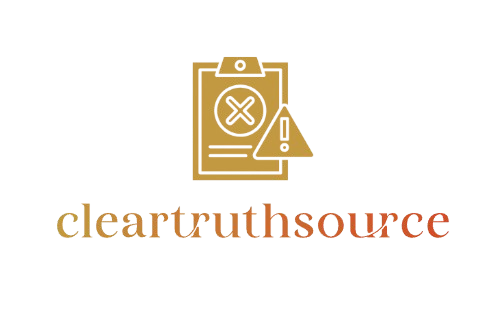Public opinion isn’t just a buzzword tossed around in political debates or social media rants. It’s the heartbeat of society, reflecting what people think and feel about everything from the latest celebrity scandal to pressing global issues. Understanding public opinion can be as enlightening as finding out your favorite snack is actually good for you—who knew?
In a world where everyone has a voice, grasping the meaning of public opinion is crucial. It shapes policies, influences brands, and even sways elections. So, whether you’re a curious mind or a savvy marketer, diving into this topic can unlock insights that make you the life of the party—or at least the most informed person in the room. Let’s explore what public opinion really means and why it matters more than ever.
Public Opinion Meaning
Public opinion represents the collective thoughts and feelings of individuals within a society on various topics. These topics can range from political issues to social trends and consumer preferences. Political scientists and sociologists often analyze public opinion to gauge societal moods and behaviors.
Quantitative measures, such as surveys and polls, gather data on public opinion. Scholars use this data to interpret how opinions shape government policies, business strategies, and media narratives. Opinion polls can highlight trends over time, providing insights into shifting values.
Public opinion significantly influences elections and policymaking. Politicians often rely on public sentiment to adjust campaigns and messages. Changes in public opinion can lead to concrete actions, whether passing legislation or altering marketing approaches.
Brands and organizations pay close attention to public opinion. They utilize feedback to align products with customer preferences. Engaging with public sentiment fosters consumer loyalty and enhances brand reputation.
Understanding public opinion requires continuous analysis. By monitoring trends, individuals and organizations can respond to societal changes effectively. Actionable insights derived from public opinion can inform critical decisions, ensuring alignment with the preferences of the target audience.
Public opinion serves as a powerful driver in democratic societies. Awareness of its implications can enhance engagement across various disciplines, from politics to marketing. An informed perspective on public opinion enhances strategic decision-making for stakeholders involved in shaping public discourse.
The Importance of Public Opinion

Public opinion holds significant weight in shaping societal dynamics. Understanding its implications enhances awareness of various issues.
Impact on Politics
Elections often hinge on public sentiment. Politicians gauge voter preferences through polls, adjusting their strategies accordingly. Campaign messages evolve based on common concerns, ensuring relevance. Shifts in public opinion can lead to changes in policy and legislation. For instance, widespread support for healthcare reform prompted lawmakers to prioritize related initiatives. Engaging with public sentiment fosters trust and transparency, essential elements in a functioning democracy.
Influence on Social Issues
Public opinion drives discussions surrounding social issues. Movements advocating for equality and justice gain traction through collective voices. Awareness campaigns thrive on public support, influencing policy changes and societal norms. Events such as protests or social media campaigns often reflect the public’s stance on critical issues. Research shows that when individuals express their views, it can lead to significant shifts in public policies. Active participation in conversations about social topics creates opportunities for positive change.
Historical Context of Public Opinion
Public opinion has evolved significantly throughout history. In ancient Greece, citizens actively participated in discussions about governance in public forums. These early discussions laid the groundwork for modern democratic ideals. The rise of democracy in the 18th and 19th centuries shifted how societies viewed collective opinions. Public sentiment began to take center stage in shaping political landscapes.
Surveys and polls emerged as vital tools for measuring public perspective in the 20th century. Gallup and Harris introduced methodologies that allowed for systematic analysis of public opinion. These methods provided insights that informed political campaigns and social movements. As media evolved, public opinion became increasingly influential in shaping narratives.
The role of public opinion became particularly pronounced during pivotal moments such as the Civil Rights Movement. Activists used public sentiment to rally support for social change, demonstrating its power to influence policy. Analysts noted that shifts in public attitudes often prompted legislative reforms, showing a direct correlation between collective opinion and government action.
In recent decades, the advent of digital communication transformed how public opinion is formed and expressed. Social media platforms allow instantaneous feedback, giving rise to trends that impact political and social discourse. Contemporary studies emphasize the need to analyze online behavior to understand public sentiments fully. Understanding historical context highlights public opinion’s ongoing importance in shaping societal dynamics.
Methods of Measuring Public Opinion
Public opinion is measured through various methods designed to capture the collective sentiments of individuals. Each method provides unique insights into how the public thinks and feels.
Surveys and Polls
Surveys and polls serve as primary tools for gauging public opinion. Researchers collect data using structured questionnaires to quantify responses on specific issues. Random sampling techniques ensure that the results represent the diverse views within a population. By analyzing trends over time, analysts detect shifts in public sentiment regarding political policies or social concerns. Organizations like Gallup provide reputable examples of how these data collection methods influence decision-making in politics and business.
Focus Groups
Focus groups allow for in-depth discussions among a small, diverse group of participants. Facilitators guide conversations to explore participants’ attitudes and motivations on various topics. This method uncovers nuances in public opinion, revealing why individuals feel a certain way about issues. Insights gained from these discussions help brands tailor their strategies and messaging more effectively. For example, political candidates often use focus groups to refine campaign messages based on voter feedback, enhancing engagement and relatability.
Factors Influencing Public Opinion
Public opinion is shaped by numerous factors that range from media portrayals to individual social identities.
Media Influence
Media access affects public opinion. News outlets, social media platforms, and entertainment sources shape perceptions of societal issues. Coverage of specific events can amplify certain viewpoints while minimizing others. For instance, frequent media reporting on climate change raises awareness and urgency in public perception. Additionally, the portrayal of political candidates in news cycles directly impacts public sentiment during elections. Trust in media also influences how information is received. Outlets perceived as credible can foster informed opinions, while those seen as biased may lead to divisions in public perspectives.
Social Identity
Social identity plays a significant role in shaping public opinion. Individual beliefs often align with group affiliations such as ethnicity, religion, or political ideology. Shared experiences within these groups create collective perspectives on social matters. For example, individuals identifying with minority groups may prioritize issues such as equality and representation. Age and socio-economic status further influence how opinions form, ensuring that diverse viewpoints emerge. People’s social circles also affect opinions through discussions and shared content. Engagement within these identities helps shape a more nuanced understanding of broader societal issues.
Conclusion
Public opinion serves as a powerful force in shaping societal dynamics and influencing key decisions across various sectors. Its ability to reflect collective thoughts and feelings highlights the importance of understanding these sentiments. As society continues to evolve, the role of public opinion will remain critical in guiding policies, marketing strategies, and social movements. Engaging with and analyzing public opinion not only fosters awareness but also empowers individuals and organizations to drive meaningful change. By staying informed about public sentiment, stakeholders can navigate the complexities of modern society more effectively.

